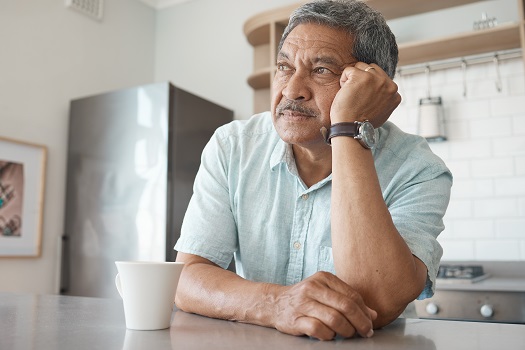Social isolation is often dismissed as a minor inconvenience, but it’s a serious problem among the elderly population. Seniors without strong social support systems are more likely to report emotional health disorders such as depression and anxiety, and they may even experience physical effects. Learning a little about the common causes of social isolation can help seniors and their loved ones address the issue.
Mobility Issues
Seniors are often socially isolated because they’re physically isolated. When seniors are stuck at home due to limited mobility, they’re far more likely to become isolated. Arranging visits for housebound seniors provides a lot of relief, but it’s even more helpful if you can find ways to overcome the mobility issues. Wearing slip-proof shoes, using a walker, or getting a power wheelchair can help a senior regain independence.
Seniors with mobility limitations could also develop serious illnesses, making it a challenge to care for themselves on their own. If your senior loved one needs around-the-clock assistance at home, the Anchorage live-in care professionals at Home Care Assistance are here to help. Our proprietary Balanced Care Method was designed to promote longevity by encouraging seniors to focus on healthy eating, regular exercise, mental engagement, and other important lifestyle factors.
Diminished Senses
A lot of human social interactions rely on the ability to hear others talk and see changes in facial expressions and body language. Hearing and vision loss are common in seniors, which can greatly impact the ability to socialize. Make sure to regularly get your senior loved one’s hearing and vision checked out so you can treat this cause of isolation.
Shrinking Social Circles
The senior years are associated with a lot of major changes, such as moving to a nursing home or facing the death of a spouse, that make it difficult to maintain old friendships. It’s easy for seniors to just gradually lose all their friends without noticing it, and the senior lifestyle isn’t always conducive to forming new friendships. Seniors may need to go out of their way to join local book clubs, attend senior meetups, or visit community centers to find new friends.
Dementia
Social isolation can sometimes be a sign of a more serious issue. In the early stages of dementia, seniors often undergo personality changes and mood swings that make it difficult to socialize. Seniors often manage just fine in familiar surroundings, but they may find it increasingly difficult to interact with other people. Though dementia cannot be cured, an early diagnosis can help seniors seek treatment for the symptoms. Therefore, it’s important to bring up any sudden social isolation with your loved one’s doctor.
Social isolation can result in mental, emotional, and physical challenges for aging adults, but they don’t have to manage them alone. Elderly home care agencies can be a great boon to seniors. With the help of the caregivers at Home Care Assistance, your aging loved one can lead a happier and healthier life. We offer a revolutionary program called the Balanced Care Method, which encourages seniors to eat nutritious foods, exercise and socialize regularly, and focus on other lifestyle factors that increase life expectancy.
Lack of Access to Transportation
Another one of the leading causes of social isolation among seniors is simply the challenge of getting to a place where they can socialize. In rural areas, seniors who are no longer capable of driving are trapped at home, while in urban areas, buses and subways may seem overwhelming and confusing. Check to see if there are any local organizations that can offer rides to seniors, or work with your loved one to develop other methods for getting around.
Social activity is only one of many factors that contribute to robust mental and physical health in seniors. Not every senior has the same care needs, which means they don’t all need the same type of home care. Anchorage families can rely on Home Care Assistance to provide individualized care plans to meet your elderly loved one’s unique care needs. Our holistic Balanced Care Method was designed to help seniors focus on healthy lifestyle habits such as eating nutritious foods, exercising regularly, and maintaining strong social ties, and our Cognitive Therapeutics Method offers mentally stimulating activities that can prevent cognitive decline and delay the onset of dementia. Trust your loved one’s care to the professionals at Home Care Assistance. Reach out to one of our compassionate Care Managers today at (907) 770-0907.
